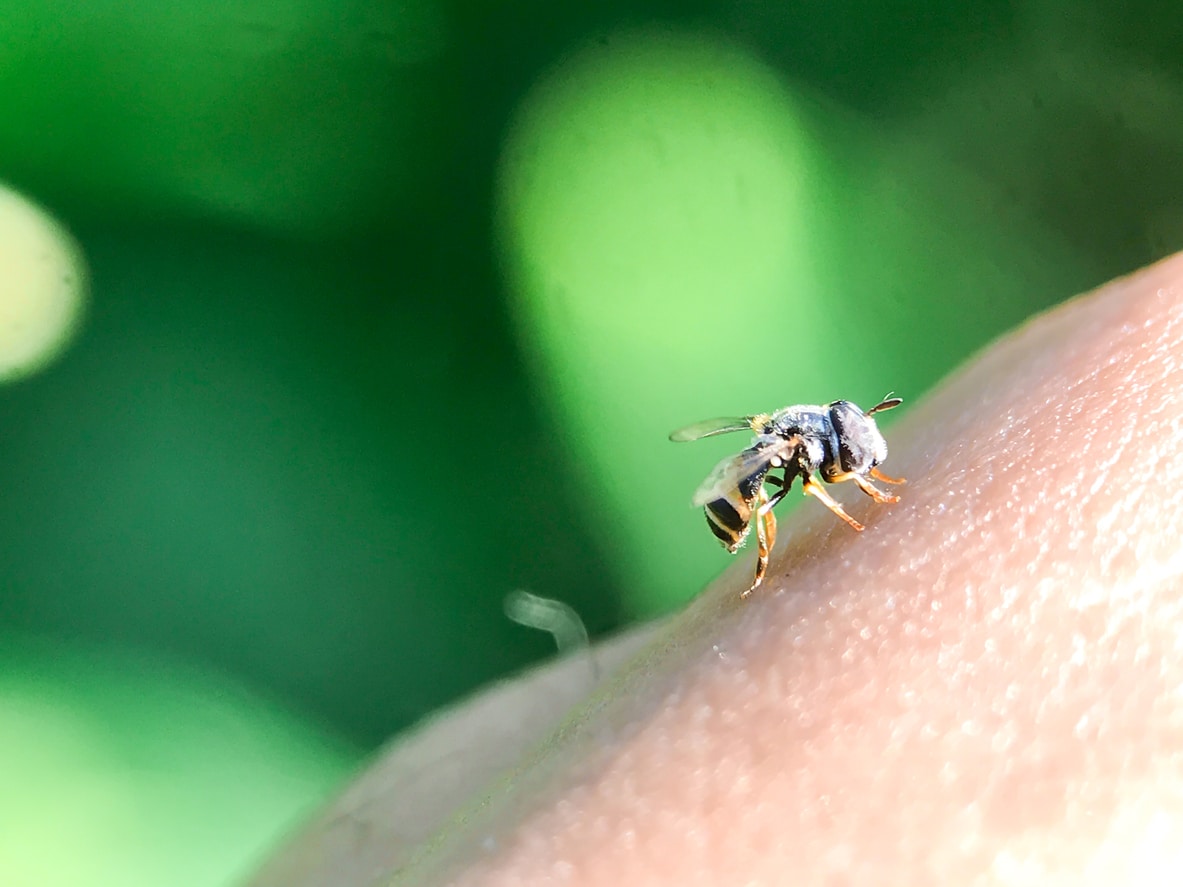Getting stung by a bee during a walk in Margaret Hunter Park can be a little alarming, especially if you’re uncertain how you will react. An allergy to insect stings accounts for 5% of the U.S. population. Let’s look at a few symptoms and treatments of an allergic bee sting to help you navigate future stings for yourself or your loved ones.
What Are the Symptoms of an Allergic Bee Sting?

When a bee stings you, its stinger, containing venom, detaches from its body and gets stuck in your skin. The venom-filled stinger causes pain and swelling. Pain and swelling may occur without an allergy, but people with a bee sting allergy may also experience symptoms including:
- Chest tightness
- Dizziness
- Fast pulse
- Hive
- Difficulty swallowing or breathing
- Swelling of the tongue or throat
- Stomach cramps
- Diarrhea
- Nausea
Some bee stings can result in anaphylaxis, a severe reaction obstructing breathing and requiring immediate medical attention.
While bees may sting anyone, bright colors, perfume, interacting with bee hives or spending a lot of time outdoors can make bee stings more likely.
What To Do After a Bee Sting
You can treat mild bee stings at home by following these steps:
- Remove the stinger. Use a credit card, fingernail or other flat surface to gently push the stinger to the surface of the skin and remove it. Avoid using tweezers, as the gripping pressure can inject more venom into your skin.
- Clean the wound site. Wash the area with soap and water for at least twenty seconds.
- Ice the wound site. Wrap an ice pack in a clean towel and place it on the wound site to reduce swelling.
- Take allergy medication. Taking an antihistamine can help reduce swelling and itchiness. Calamine lotion or hydrocortisone cream can also effectively calm itching.
After following these at-home care steps, keep an eye on the wound site and monitor your symptoms for severe reactions. If you begin experiencing symptoms of anaphylactic shock, such as a drop in blood pressure or trouble breathing, seek immediate emergency medical attention.
Scheduling an allergy test is one of the best ways to prepare for a future bee sting. Your allergist can identify specific insect allergies and give you tips on managing them. To make an appointment with one of our allergy specialists, contact Carolina Pines ENT today.
